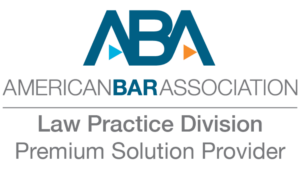Table of Contents
Resource Guide for Minorities Studying Law
1) Financial Resources and Help Paying for Law School
2) Minority Law Student Associations and Organizations
3) Diversity Resources for Legal Professionals
4) Resources for Starting a Law Firm
Resource Guide for Minorities Studying Law
Students who are part of a minority group may fall into any number of categories based on race, ethnicity, or other demographic features, and tend to have less representation within college and university. Because of this, it can be difficult for individuals to feel like they have an equal opportunity to succeed
Lack of diverse representation is an issue that goes beyond schools; it is an issue that takes over the working world as well — more specifically, legal professions.
Statistics provided by the American Bar Association when surveying the demographics of resident active attorneys in 2020 show:
- 63% male;
- 37 % female;
- 86 % caucasian;
- 5 % African-American;
- 5 % Hispanic;
- 2 % Asian;
- 2 % Multiracial;
- 0 % Hawaiin/Pacific Islander;
- 0 % Native American.
From the statistics provided, it is clear that there is a lack of diverse representation in the legal field. Why is this a problem? Because it is part of a business’s social responsibility to have equal representation within their company.
More and more underrepresented student populations such as people of color, women, and those in the LGBTQ+ community, are applying for law school not only to better their own futures, but embody the representation their communities need.
Listed below are resources for minority law school students.
Financial Resources and Help Paying for Law School
Tuition and fees, books, technology, room and board, and transportation are just a few of the costs that law school students should expect to pay. The average cost of attendance for the top 10 law schools during the 2019-2020 school year was a median total of $67,275. Student loans and grants alone may not be enough to cover the costs, and not everyone is able to pay that amount out-of-pocket. Luckily, there are scholarships and other programs that diverse law students can apply for to help cover the costs associated with law school.
Pre-Law Programs for Diverse Applicants
Pre-law is an opportunity to step foot into the legal field before entering law school. Here are resources available to minority pre-law students that need financial assistance with school:
- Achieving Success in the Application Process (ASAP): College juniors, seniors, and post-graduates who are planning on applying to law school are eligible for the ASAP program. This program was created to “help participants develop the tools they need to understand the application process and become competitive law school applicants.” It is awarded on a first-come, first-served basis and costs $60 to apply for.
- Donald J. Weidner Summer for Undergraduates: This is an undergraduate program that brings students from throughout the country together for a month-long legal study during the summer. It doesn’t cost to attend. To be eligible for the program, you must be a rising sophomore, junior, or senior college student enrolled at a two- or four-year institution, with a major in any background. To apply for the Donald J. Weidner Summer for Undergrad program, applicants will need to complete the application, upload a current resume, provide a personal statement and letter of recommendation, and a current transcript.
- LAWBound: The purpose of the LAWBound program is to increase the number of Latinx students that attend law school. They do this by providing program members with outreach activities, mentoring and networking opportunities, and a wrap-around program that improves access from law school to bar admission. In order to apply for the LAWBound program, applicants must be currently enrolled as a college freshman or sophomore.
- LexScholars: LexScholars is “a diversity pipeline initiative aimed at learning more about effective methods for increasing law school diversity by providing more than 1,200 aspiring lawyers with resources and guidance to pursue their goal of attending law school.” The first 50 applicants will receive LSAT prep and admission counseling, ongoing financial education, and other incentives. To find out more about the eligibility requirements and selection process, visit the LexScholars website.
- Prelaw Summer Institute for American Indians and Alaska Natives (PLSI): PLSI is a two-month program held during the summer that prepares prospective American Indian and Alaska Native students for law school. There are no tuition or other fees for the program. In order to be eligible and apply for the PLSI program, applicants must be an American Indian or Alaska Native who plans to attend law school.
- Prelaw Undergraduate Scholars (PLUS) Program: The PLUS program was created to help prospective law school students experience what law school will be like.
Diversity Scholarships for Law Students
Let’s take a look at some of the scholarships available for minority students:
- Herbert Lehman Education Fund Scholarship: The Herbert Lehman Education Fund Scholarship was initially awarded to help African-American students attend formerly segregated four-year colleges and universities in the South and “to increase the number of African Americans in the legal profession.” Now, the scholarship is intended to help transform racial equality by supporting undergrads with the financial help they need to complete their studies. To apply for the Herbert Lehman Education Fund Scholarship, students must be a U.S. citizen, a graduating high school senior, a first-year student in an accredited four-year college, or a student transferring into an accredited college. They must demonstrate financial need with a combined family income of $65,000 or less, present a record of academic achievement, and demonstrate a commitment to public service. The selected winners will be awarded an amount of $2,000.
- Legal Opportunity Scholarship Fund: To apply for the Legal Opportunity Scholarship Fund, applicants must meet the eligibility requirements. Some of these requirements are that the applicant must be an entering, first-year law student. If selected, students would win an award amount of $15,000 that would be applied over their three years in law school.
- MALDEF Law School Scholarship Program: MALDEF has a scholarship program that awards five to 15 law students of the Latinx community with $2,000. To apply for the MALDEF scholarship, applicants must include a personal statement, current resume, one letter of recommendation, and a transcript.
- National Asian Pacific American Bar Association (NAPABA) Law Foundation Scholarship: The NAPABA scholarship awards an individual $5,000. To apply for the NAPABA scholarship, applicants must be enrolled as a full-time or part-time 1L or 2L law student in an Association of American Law School accredited law school.
- Sidney B. Williams, Jr. Scholar Program: The Sidney B. Williams, Jr. Scholar Program “assists STEM-educated individuals from underrepresented racial and ethnic groups seeking admission to an ABA-accredited law school…” Scholarship award amount varies. To apply for the Sidney B. Williams, Jr. scholarship, applicants must meet a variety of requirements. To view all of these requirements, prospecting applicants must visit the scholarship website.
Other Higher Education Scholarships and Opportunities for Diverse Applicants
Here are a few more scholarships diverse students in higher education can apply for to help cover the costs of their studies:
- The Gates Scholarship: This scholarship is available to outstanding, minority, high school seniors that come from low-income households. Each year, 300 students are selected to receive funding for the full cost of attendance that is not already covered by any other type of financial aid. To apply for the Gates scholarship, students must meet the eligibility requirements — they must be a high school senior, pell-eligible, a U.S. citizen, and in good academic standing.
- United Negro College Fund (UNCF): The UNFC has helped over 500,000 students with their college fund since its founding in 1944. They offer dozens of scholarships to individuals who qualify. To find a scholarship, prospecting applicants must search the UNCF scholarship page — it is encouraged to apply for any scholarship that you may be eligible for.
Minority Law Student Associations and Organizations
Being a part of an association or organization has numerous benefits for students, especially those in demographics that lack representation.
Here is a non-exhaustive list of organizations and associations available for minority law students:
- MetroLALSA: This is an organization that empowers individuals of the Latinx community in the legal profession.
- National Black Law Students Association: The NBLSA is “a national organization formed to articulate and promote the needs and goals of Black law students to effectuate change in the legal community.”
- National Latina/o Law Student Association: The NLLSA is a non-profit 501 (c) (3) organization that serves as a voice for Latinx individuals in the field of law.
- National Native American Law Students Association: NNALSA is an organization that “promotes indigenous legal issues that affect Native communities.”
- North American South Asian Law Students Association: The mission statement of the NASALSA is to “build bridges to close the geographical and generation gaps faced by South Asian law students and attorneys for the benefit of [their] community.”
Importance of Joining an Association or Organization As a College Student
It is important for college students to join an association or organization. Some of the benefits that come along with being in an association or organization as a student include:
- Adding another opportunity to spruce up your resume;
- Developing communication and interpersonal skills;
- Expanding your personal network;
- Learning more about yourself and your peers;
- Learning to work as a team.
Diversity Resources for Legal Professionals
As an employer, it should be a priority to hire diverse employees if not solely for the benefits that diversity in the workplace brings to the table. These benefits include:
- A variety of different perspectives;
- Increased creativity;
- Higher innovation;
- Better decision-making and problem-solving;
- Increased profits;
- Higher employee engagement.
Diversity in legal professions is important because it can bring in more clients, lead to increased innovation, and improve the odds of success for a legal team.
Listed below are resources legal professionals can join and/or utilize after college to help promote diversity in the field of law.
Professional Organizations and Associations
Here is a non-exhaustive list of different organizations and associations post-college legal professionals can join to gain a one-up in their career.
- Corporate Counsel Women of Color: The Corporate Counsel Women of Color is a non-profit 501 (c) (3) organization that was formed to “provide a support network to in-house women of color and to facilitate networking around the nation and abroad, promote career advancement and the success of in-house women of color, and promote all aspects of global diversity…” To join the Corporate Counsel Women of Color, you must meet all the requirements — including that you must “possess a Juris Doctorate Degree (or internal equivalent) and engage in the practice of law, work at a Fortune 1000 company, Forbes 2000 company, or not-for-profit corporation, and have a strong interest and willingness to network and develop relationships with in-house women attorneys of color around the globe.”
- Leadership Council on Legal Diversity: This is an organization that is dedicated to creating a more diverse U.S. legal field. They create programs that attract, inspire, and nurture talented, diverse individuals in law. If becoming a member of the LCLD organization interests you, you must fill out the application and pay your dues.
- Minority Corporate Counsel Association (MCCA): The MCCA is “committed to advancing the hiring, retention, and promotion of diverse lawyers in law departments and law firms by providing research, best practices, professional development, and training…” To become a member of the MCCA, prospecting individuals must choose their membership level, and fill out the application and questionnaire.
- National Association of Minority and Women-Owned Law Firms: NAMWOLF is a network that is made up of law firms around the country and aims to promote diversity and inclusion in each. To become a member of NAMWOLF, applicants must meet the criteria.
- National Association of Women Lawyers: This organization was created to provide assistance and leadership advice to women in the legal profession, as well as advocate for the equality of women under the law. If you choose, you can either become an individual member or apply for an institutional membership.
- National Native American Bar Association: The NNABA is another organization that aims to promote diversity in the law profession by educating members on the community’s unique cultural and legal issues. To become a member of the NNABA, individuals must pay a membership fee of $75 and fill out the online application form.
- South Asian Bar Association of North America: The South Asian Bar Association of North America “seeks to strengthen the rapidly growing South Asian legal community with a recognized and trusted forum for professional growth and advancement, and promotes civil rights and access to justice for the South Asian community.” If choosing to become a member of the SABANA, prospecting members can choose from two membership types: individual membership or local chapter membership.
Importance of Joining an Association or Organization as a Legal Professional
It is just as important to join an association or organization as a practicing professional as it is while a student in college. A few benefits that can come from joining an organization as a legal professional include:
- The ability to continue your education;
- Being introduced to potential job prospects;
- The ability to learn about the industry with help from a mentor;
- Numerous networking opportunities;
- Access to resources and new perspectives.
Resources for Starting a Law Firm
Minority law graduates may want to start their own law firm rather than applying for ones that are already established. While the reasons for doing so vary, what all prospective law firm owners can relate to is how difficult it can be to get started. Here are resources for those looking to start their own diverse law firm.
Minority Business Grants
Starting your own firm may require expenses that you don’t have — luckily there are grants available to help individuals fund their business ventures.
- Gov: This is a grant program managed by the Department of Health and Human Services. According to their mission statement, their goal is to “provide a common website for federal agencies to post discretionary funding opportunities and for grantees to find and apply to them.”
- Minority Business Development Agency Grants: The MBDA has multiple programs that offer customized business development and services. According to the MBDA mission statement, they are the “only federal agency solely dedicated to the growth and global competitiveness of minority business enterprises.”
- NASE Growth Grants: Businesses can apply for and earn up to $4,000 with the NASE Growth Grant. Applicants must be a good-standing member of NASE and demonstrate a business need that could be fulfilled by the grant.
- Rural Business Development Grants: “This program is designed to provide technical assistance and training for small rural businesses. Small means that the business has fewer than 50 new workers and less than $1 million in gross revenue.” Rural public entities that are eligible for this program include towns, communities, state agencies, authorities, nonprofit corporations, and more.
- SBA 8(a) Business Development Program: This is a development program that is targeted towards “small businesses owned by socially and economically disadvantaged people or entities.” Disadvantaged businesses that apply for the program can get a Business Opportunity Specialist to help navigate federal contracting, along with multiple other benefits.
Minority Business Accelerator Programs
A business accelerator is “a program that gives developing companies access to mentorship, investors, and other support that help them become stable, self-sufficient businesses.” Start-up firms may choose to apply for business accelerator programs to assist them with the earlier stages of starting their firm. Here are a few examples of business accelerator programs available to those starting their own firm:
- BuildUp: BuildUp is a program that offers experienced and novice business builders advice on how to be successful in their industry. It introduces them to topics such as understanding the importance of a business plan, how to secure funds to start their business, and what it takes to insure their business.
- Manos Accelerator: Manos is an accelerator program available for Latinx business builders that aims to “provide ‘hands-on’ expertise in the areas of product development, design and user experience, customer acquisition, business metrics, and pitch preparation through [a] 12-week mentorship and investor [program].”
- NewMe: NewMe is an entrepreneurship program that provides start-up businesses with mentorship programs, specialized curriculums, and for a select few, capital investment. Start-up businesses can apply for NewMe by filling out and submitting an online application.
- Power Moves: Since 2014, Power Moves has been coaching, elevating, and providing access to capital to entrepreneurs of color.
- Tumml: Tumml’s mission is to “empower entrepreneurs to solve urban problems… [and] share best practices to enhance the urban innovation ecosystem.”
Organizations and Nonprofits That Support Minority Entrepreneur
Nonprofit organizations can be helpful because they have the ability to provide minority entrepreneurs the much-needed support they deserve while trying to open their own law firm. Here is a list of organizations and nonprofits that support minority entrepreneurs.
- Code2040: Code 2040 is an organization that offers a variety of programs to help connect Black and Latinx individuals with companies, mentors, and peers committed to racial equity and inclusion.
- Code Fever: This is an organization that is dedicated to “increasing the innovation potential of Black students, startups, and communities.”
- National Hispanic Business Group (NHBG): The NHBG “is dedicated to expanding, promoting, and creating business opportunities for its members by strategically fostering dialogue and economic exchange, while supporting positive social change and community empowerment.”
- SCORE: SCORE makes it their mission to mentor and educate individuals who are starting their own small businesses so that they’re not alone on their business journey.
- United States Hispanic Chamber of Commerce (USHCC): USHCC represents over 4.7 million Hispanic-owned businesses. They take the time to promote economic growth and development within a Hispanic-owned business.
- S. Black Chambers: The U.S. Black Chambers “provides committed, visionary leadership and advocacy in the realization of economic empowerment.” As well as dedicated themselves to advocating for African American Chambers of Commerce and business organizations.
- USPAACC: The USPAACC is a non-profit organization that represents Pan Asian American businesses. Their mission is to “be the gateway to corporate and government contracts, Pan Asian American suppliers, information about Asian Americans, and the Asia-PAcific and Indian Subcontinent markets.”
Additional Resources on Starting and Marketing Your Firm
It takes a number of steps and resources to start a law firm. For instance, you need to set personal goals, create a clear business vision and leadership style, and build your clientele. Additionally, you must understand the importance of marketing your small business. To help feel more confident, law professionals should keep in mind the following points when marketing their law firm.
- Capitalize on personal brands;
- Develop high-quality content;
- Stick to a specific niche;
- Invest in paid search;
- Manage your reviews;
- Promote your content;
- Think locally;
- Use video to your advantage.
Marketing your new firm is essential to generating and converting successful legal leads.
Finding Clients
The difficulties of starting your own law firm don’t stop after your business opens; in fact, this is just the beginning. You must now find clients that you and your firm can represent. There are too many law firms that miss out on legal leads because they aren’t getting enough exposure, or doing adequate leg work to improve their firm’s visibility and attractiveness to prospective clients. To avoid this, here are tips legal professionals can follow to help gain trust and better convert new law clients:
- Create a blog on your website;
- Cultivate referral sources;
- Keep networking;
- Understand and leverage online tools;
- Work with your existing connections and contacts.
It is not uncommon to feel alone when you’re a part of a community that is underrepresented. With the steady increase of organizations, programs, and scholarships being created to help combat this, it can help allow members of minority groups the opportunity to be heard.
Law firms who need to Find New Clients are facing a big problem.
Potential clients are searching online for an attorney, and it’s increasingly difficult for law firms to stand out in search results.
Here’s how Legal Leads help.
1) We use 20 years of online advertising expertise to make sure potential clients in your region can find your law firm. As they search for an attorney, we route them to you as a Legal Lead.
2) Legal Leads are EXCLUSIVE and delivered in REAL-TIME through the web or LIVE on the phone. This means you can respond to leads right in the moment they reach out for help. It’s the best time to win them as a new client.
You only pay when you receive a lead. You can stop at any time, and you have an excellent customer support team to help you succeed!
CREATE YOUR ACCOUNT at 4legalleads.com/lawyers. It only takes a moment. Then, we’ll be in touch to help you complete your setup so you can start finding new clients!





